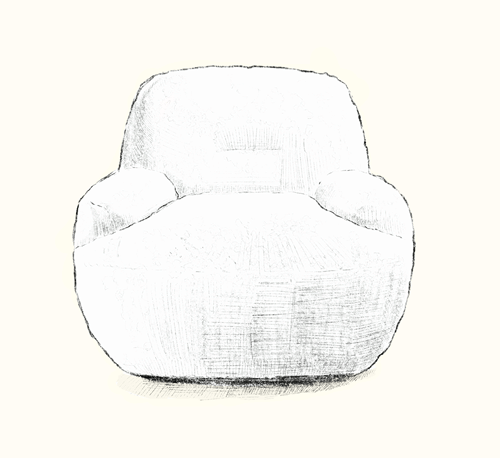French Craftsmanship Excellence Lookbook
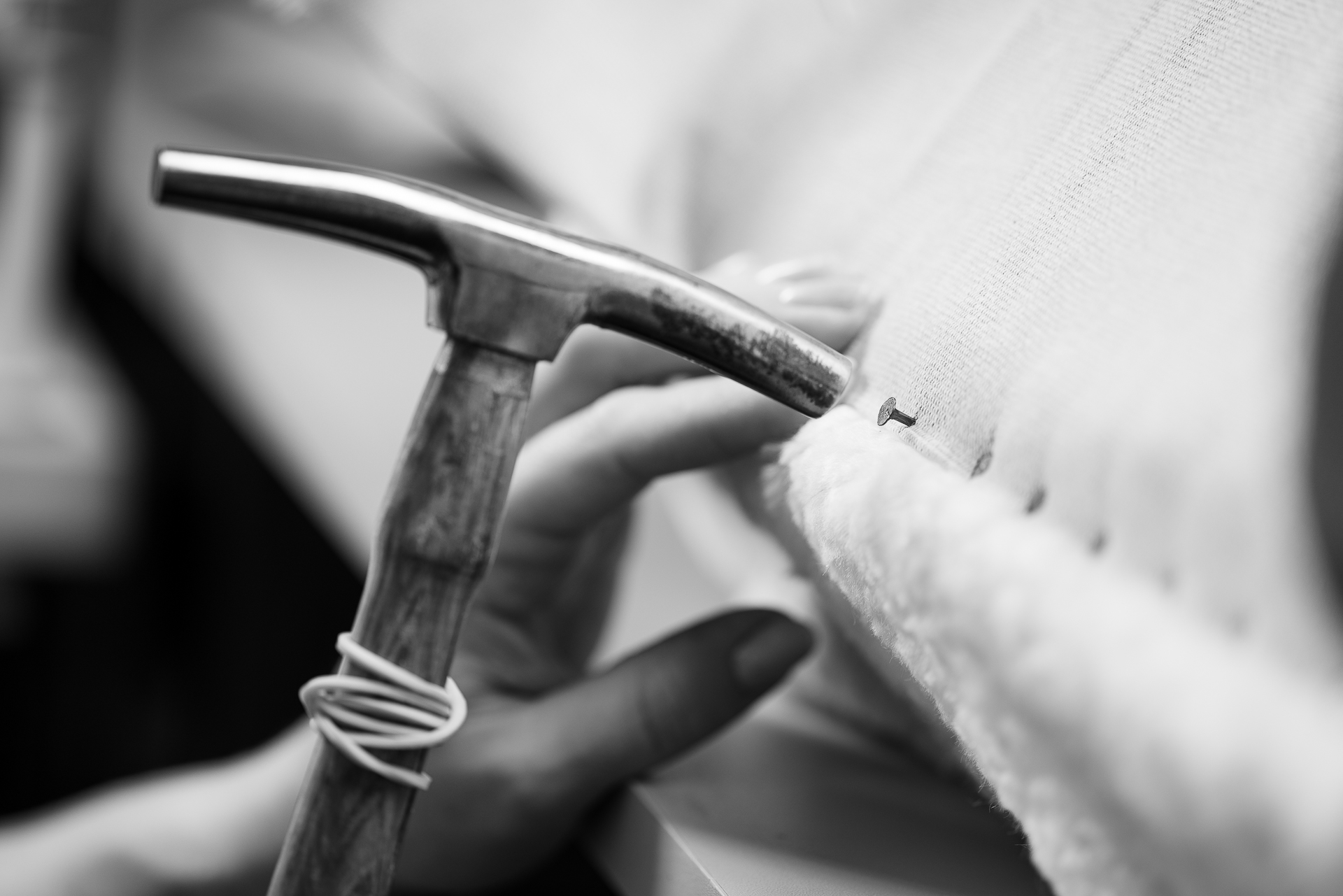
French Craftsmanship Excellence: Discovering the EPV Label and the Traditions of Decorative Arts with Maison NORKI
French craftsmanship is renowned worldwide for its exceptional know-how and refined creations. Among the many labels that distinguish outstanding companies, the EPV (Entreprise du Patrimoine Vivant) label stands out by highlighting the excellence of artisans and craft professions. We invite you to discover the EPV label—Living Heritage Companies—along with the history and tradition of French decorative arts, as well as remarkable examples of craftsmanship, including that of renowned crystal manufacturers like the Saint-Louis Crystalworks and our own Maison.
The EPV Label: A Sign of Recognition for Artisan Excellence
The EPV Label: A Sign of Recognition for Artisan Excellence
Established in 2005, the EPV label aims to recognize and promote French companies that perpetuate exceptional know-how. It is awarded by the State to companies that exhibit distinctive characteristics, such as:
• Traditional and Rare Know-How: The company must demonstrate skills that are passed down from generation to generation.
• Local Production: The company's activities must be carried out in France, ensuring the authenticity of its products.
• Commitment to Innovation: Companies must also show creativity and adaptability, integrating new technologies while preserving traditional craftsmanship.
The EPV label contributes to the valorization of craft professions and the preservation of artisanal traditions. It serves as a guarantee of quality and prestige for both artisans and consumers. Currently, around 1,500 French companies are labeled EPV, employing over 30,000 workers and generating a total revenue of nearly 5 billion euros. These companies cover a wide range of trades, from leather goods to cutlery to crystal making.
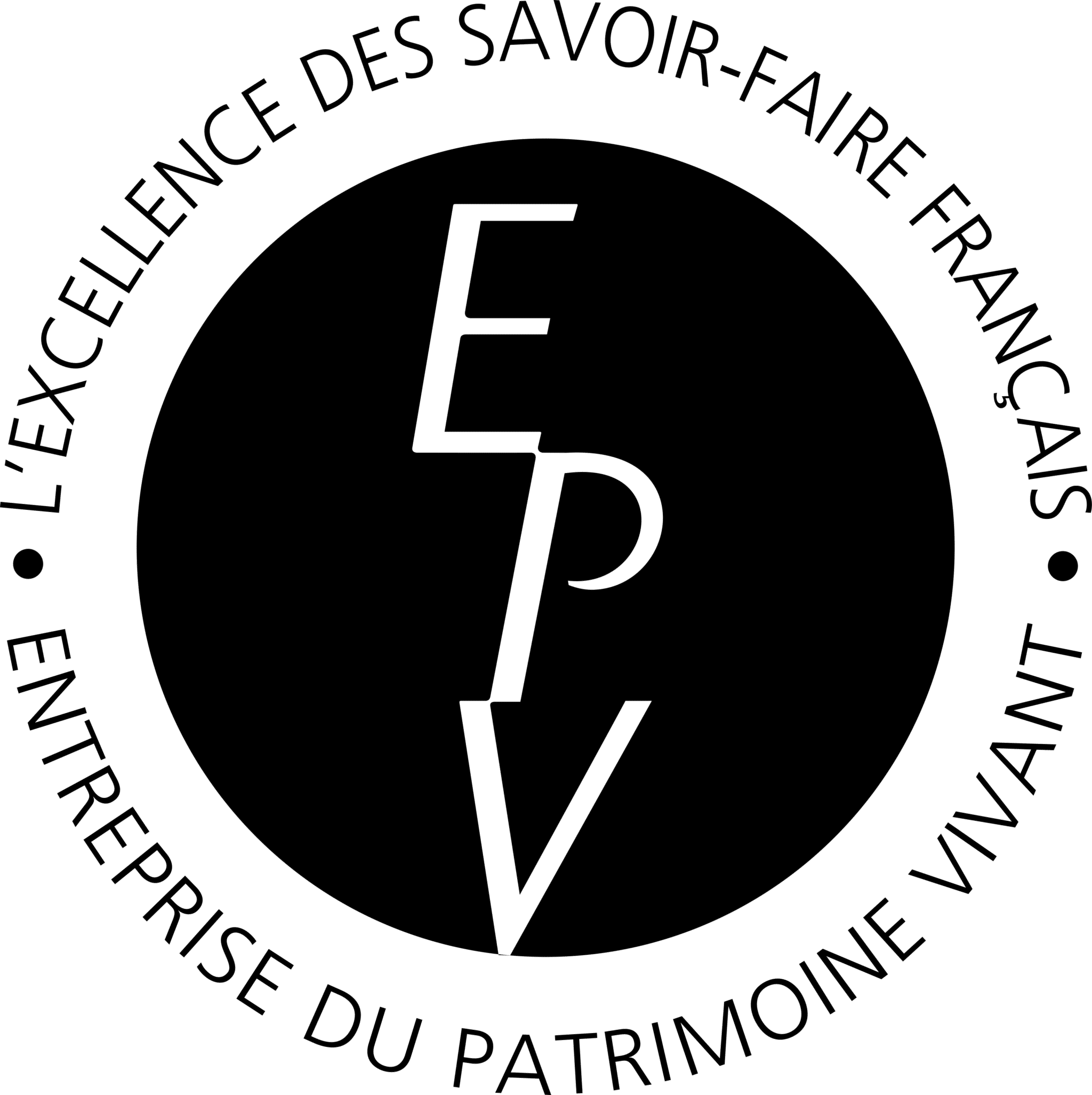
History and Tradition of French Decorative Arts
French decorative arts have a rich history that dates back several centuries. Since the Middle Ages, France has become a center of innovation in applied arts, supported by kings and queens who encouraged artisans and artists to create works of exceptional quality.
Royal Support: A Driver of Creation
During the Ancien Régime, the French monarchy played a crucial role in the development of decorative arts. Louis XIV, Louis XV, and Louis XVI patronized talented artisans, establishing the Royal Manufactures that produced iconic pieces.
• The Gobelins Manufacture: Founded under Louis XIV, this manufacture produced sumptuous tapestries that adorned royal palaces and aristocratic residences.
• The Savonnerie: Established in the 17th century, this carpet manufacture was also supported by the court and is famous for its luxury carpets.
These royal initiatives not only preserved traditional techniques but also fostered the emergence of a distinctive French style that blends innovation with classicism.
Decorative Arts in the 19th Century
In the 19th century, the Universal Exposition was a significant event for French decorative arts. These exhibitions showcased artisanal know-how and allowed artisans to gain international recognition. It was during this period that movements like Art Nouveau and Art Deco emerged, celebrating the harmony between aesthetics and utility.
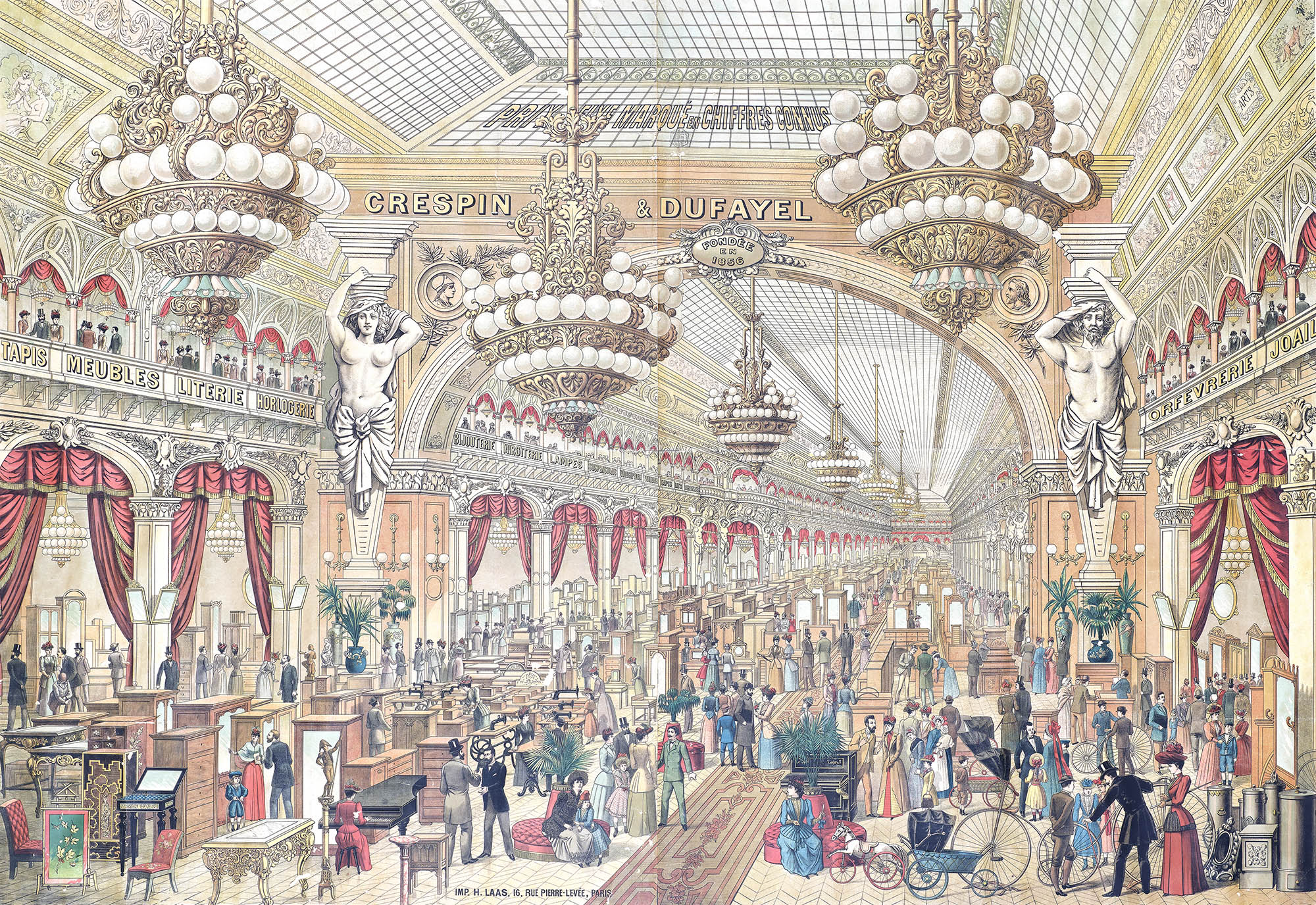
Examples of Recognized French Know-How
1. Saint-Louis Crystalworks
Founded in 1586, the Saint-Louis Crystalworks is one of the oldest crystal manufacturers in France and has received the EPV label for its exceptional craftsmanship. Located in Lorraine, it is famous for its cut crystal creations that blend tradition and innovation.
A Historical Craftsmanship
The manufacture was established by artisans specialized in glassmaking, who quickly perfected their techniques to produce high-quality crystal. Saint-Louis is distinguished by its artisanal methods, including:
• Mouth-Blowing: Each piece is mouth-blown by master glassmakers, ensuring unmatched quality and precision.
• Cutting and Engraving: The artisans of Saint-Louis use hand-cutting techniques to create intricate patterns and luminous reflections that have earned the brand its reputation.
Iconic Creations
Among the iconic pieces from Saint-Louis are majestic chandeliers, refined tableware, and various decorative objects. Their creations are highly sought after by collectors and interior design enthusiasts alike.
2. Maison NORKI
Our Maison is also EPV certified and represents rare craftsmanship in the field of decoration. Specializing in creating decorative objects from leather and fur, we embody French artisanal excellence. NORKI stands out for its traditional manufacturing techniques and attention to detail, ensuring products that are both aesthetic and functional. Our rugs, throws, cushions, armchairs, and custom sofas are crafted in our Strasbourg workshops.
Commitment to Craftsmanship
NORKI is committed to preserving and transmitting its know-how by participating in the European Days of Crafts (JEMA). This event allows our artisans to showcase their work to the public and share their passion for their craft. By opening the doors of our workshop, Maison NORKI raises awareness among visitors about the importance of excellence in craftsmanship and the richness of French traditions.
Starting December 1, 2024, Maison NORKI will also showcase iconic pieces from Saint-Louis Crystalworks in its Megève boutique. This collaboration emphasizes the importance of combining different crafts and highlights the excellence of French craftsmanship.
3. Manufacture de Sèvres
Founded in 1740, the Manufacture de Sèvres is another example of excellence in French craftsmanship. Specializing in fine porcelain, it has also received the EPV label. Sèvres is known for its painting and gilding techniques, as well as for its innovative shapes that blend tradition and modernity.
A Place of Innovation
The Manufacture de Sèvres played a key role in the evolution of decorative arts in France. It produced pieces for the crown, as well as art objects that are now displayed in museums around the world. Their creations often feature floral patterns and mythological scenes, representing the pinnacle of French craftsmanship.
4. Maison Lancel
Founded in 1876, Maison Lancelis a reference in the luxury leather goods industry. Also EPV certified, Lancel is recognized for its handbag and leather accessory creations. Their pieces combine elegance and functionality, reflecting a craftsmanship that has been passed down through generations.
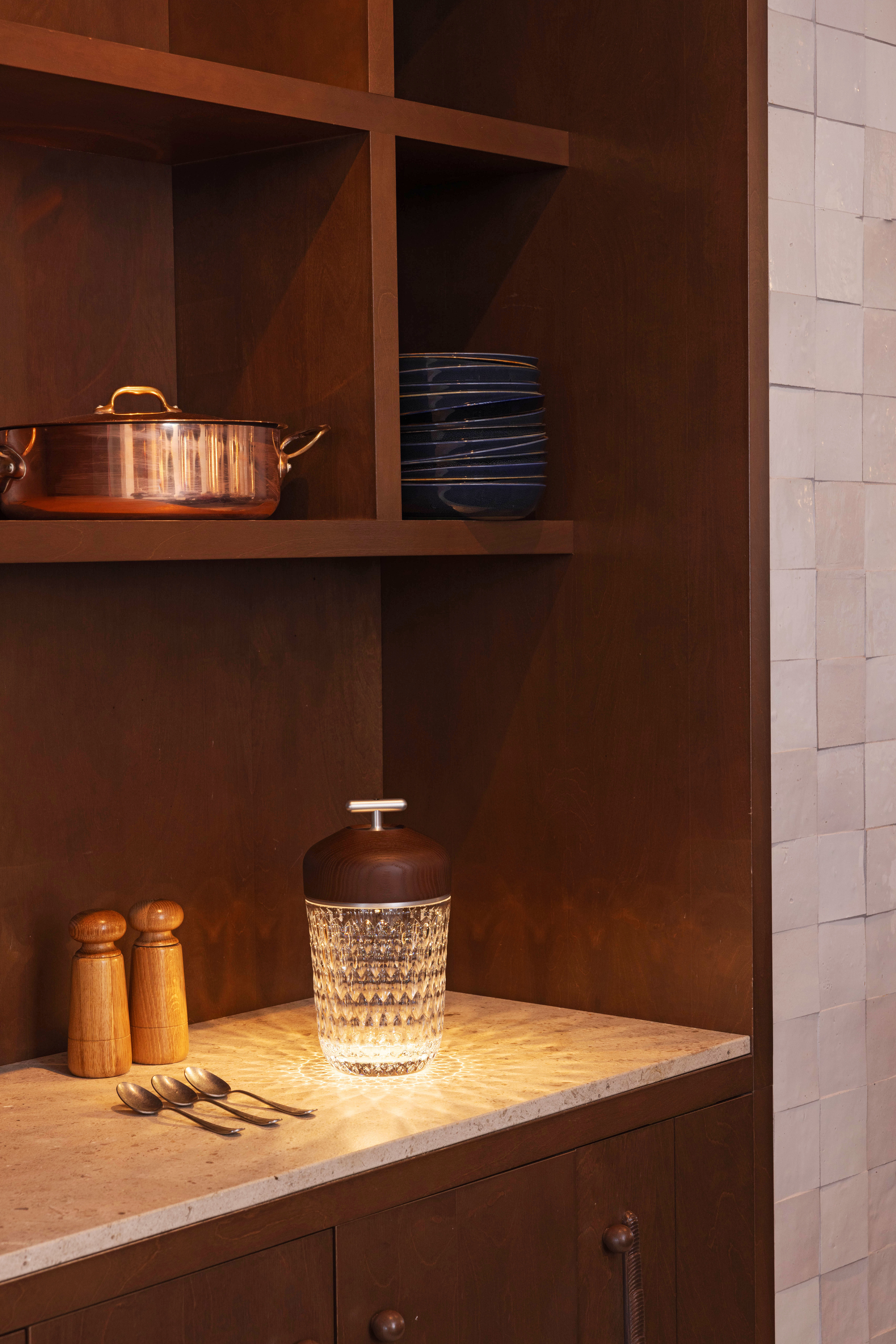


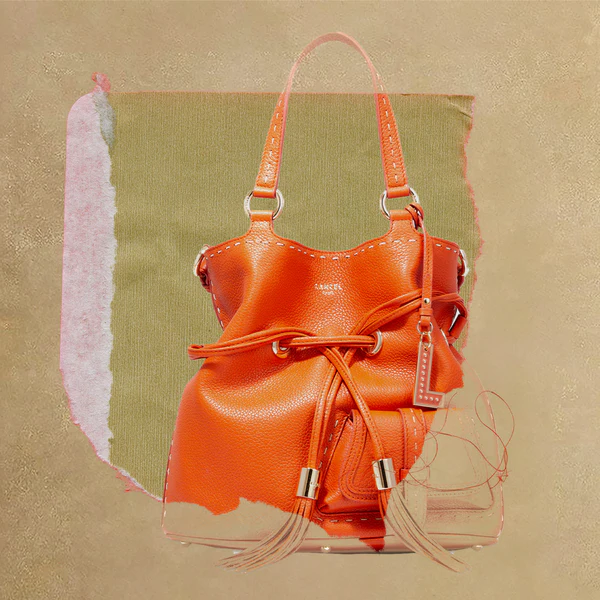
The Importance of Knowledge Transmission
Preserving artisanal know-how is essential for maintaining French cultural identity. Many EPV-certified companies actively engage in transmitting their skills to younger generations. Training programs, internships, and apprenticeships are offered to ensure the continuity of these craft professions.
Valorization of Know-How
To encourage this transmission, events like theEuropean Days of Crafts allow artisans to present their work to the public. These opportunities foster exchanges between professionals and enthusiasts, raising public awareness about the importance of excellence in craftsmanship.
French excellence in craftsmanship, illustrated by the EPV label, is a cultural treasure that deserves to be preserved and celebrated. The richness of decorative arts, supported by the history and tradition of the kings and queens of France, has given rise to unique know-how. From Saint-Louis Crystalworks to porcelain manufacturers and the rare craftsmanship represented by Maison NORKI, these companies testify to a living heritage that continues to inspire and amaze.
With the exhibition of pieces from Saint-Louis Crystalworks starting December 1, 2024, in its Megève boutique, Maison NORKI further underscores the importance of collaboration among different crafts. By supporting these artisans, we contribute to the valorization of craftsmanship and the preservation of our cultural heritage. Thus, each piece created becomes not only a work of art but also a testament to history and passion.
